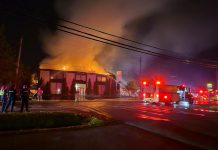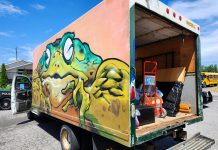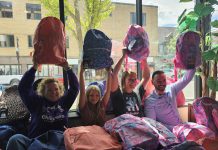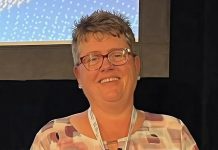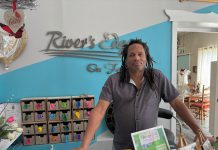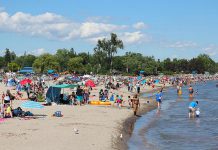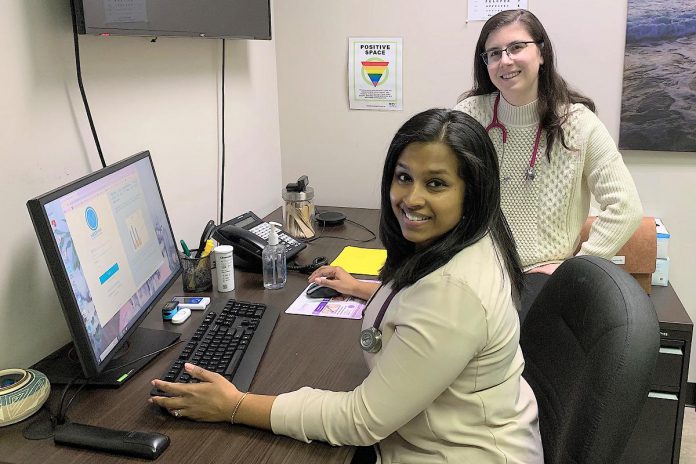
Walk, for a moment, in the footsteps of an immigrant or refugee newly arrived in Peterborough.
As a stranger in a strange land, everything is, well, strange. Add fear of the unknown to the equation. Trepidation rules as they wonder whom to turn to for the most basic of goods and services, including access to health care.
Enter Dr. Madura Sundareswaran who, on January 10th, opened the Peterborough Newcomer Health Clinic.
Initiated and operated in close conjunction with the New Canadians Centre, her clinic — located in a space provided by the Peterborough Family Health Team — is open a half day per week. Its client roster is comprised of immigrants and refugees recently relocated to the city.
“The clinic’s mandate is to help clients transition to the Canadian health care system,” says Dr. Sundareswaran, a family physician who has provided primary care to patients since she opened her practice in November 2019.
“Clients will be followed for six to nine months, depending on their vaccination status. The types of things we’re doing are orientation to the Canadian health care system, immunization catch-up, prescription refills, and referrals to specialists that might be necessary. On discharge, we provide a list of services that are available in the community for them to continue to get the help they need.”
Relatively new to Peterborough herself, having completed her residency here in 2018 after graduating from medical school at the University of Alberta, Dr. Sundareswaran is a first-generation Canadian, her parents having come to Canada from Sri Lanka and settling in Toronto where she was raised.
Once settled in the city, and in her practice, she became acquainted with the New Canadians Centre and the work it does daily to help newcomers get acclimatized to their new home.
“I wondered how their perceptions of, and experiences with, the health care system had been up to this point,” recalls Dr. Sundareswaran. “We started a research project studying the barriers to accessing primary care for immigrants and refugees here in Peterborough.”
“A lot of the research that existed already was done in big metropolitan cities. There wasn’t a lot (of research done) in a community the size of Peterborough, which has its own unique features. We don’t have the same resources for refugees in the concentration you would have somewhere the size of Toronto.”
“I heard the perspectives of people trying to help their clients navigate the (health care) system but I became fully aware of my own challenges with my practice,” Dr. Sundareswaran says. “Your everyday family doctor doesn’t have the same tools and resources to provide the level of comprehensive care needed for those new to the city — coordinating interpreters and budgeting for the extra visit time and the extra administrative support you need. It just isn’t there.”
Recognizing that void, and wanting to do something about it, Dr. Sundareswaran contacted the New Canadians’ Centre in June 2022 and asked “How can we address this gap in health care that I’m hearing exists?”
“There were a lot of meetings with my partners at the centre and a lot of brainstorming on how a model like this could work. I needed to understand not just how the centre operates but how its clients get from arriving here to then needing a family doctor and care. The centre needed to understand how the family medicine structure works. What are some of the barriers we (doctors) face and how do our clinics operate? That’s really how the whole project was born.”
With some funding provided by the Greater Peterborough Health Services Foundation, the Peterborough Newcomer Health Clinic also relies on in-kind donations. Besides the clinic space, the Peterborough Family Health Team has provided medical supplies, while the New Canadians Centre has lent administrative support and helped with office supplies as well as helped co-ordinate the services of interpreters.
For her part, Dr. Sundareswaran has provided nursing support as well as yet more medical supplies.
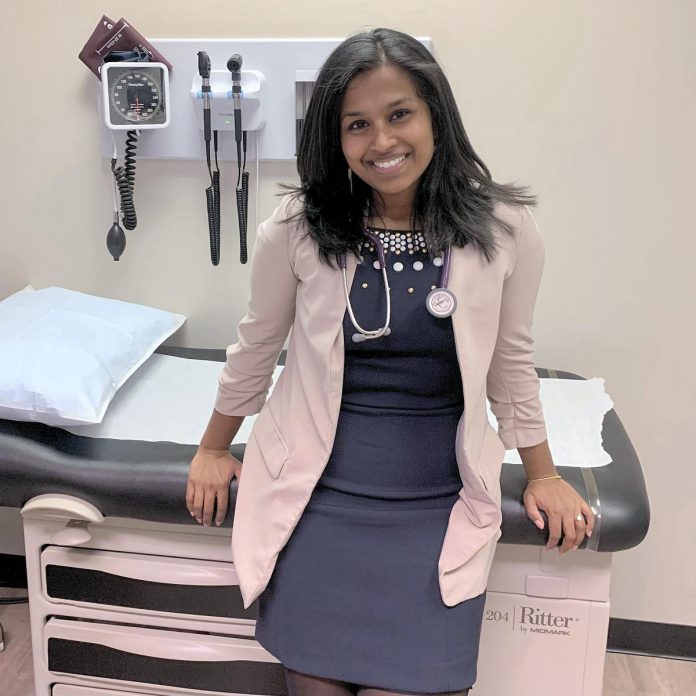
The clinic’s clients are referred by the New Canadians Centre — it is not a walk-in clinic. The first-year goal, says Dr. Sundareswaran, is to take on about 50 patients.
“It’s very much a pilot project,” she says, noting she is the clinic’s lone physician. “We’re a very small operation, partly because we’ve never done anything like this before, and because we want to be able to have ongoing evaluation, feedback, and development of our program at a manageable size.”
“I couldn’t do this without the New Canadians Centre. There are a lot of risks if you don’t allow the community to drive a project of this nature. I can have good ideas but I’m quite removed from the clients the centre sees on a regular basis. They are the frontline workers that tell me what the unique barriers and challenges are.”
Speaking to the health care-related challenges faced by immigrants and refugees, Dr. Sundareswaran notes they can be found in the many things those with access to health care often take for granted — “Things that we assume everybody knows.”
“A visit to your doctor (in Canada) is free, which is not the case in a lot of places,” Dr. Sundareswaran explains. “We have instances where people are unsure about what’s covered and what’s not, and aren’t seeking care because they’re unaware.”
“A family doctor is a critical person in helping you access what I call secondary care — specialists and tests and blood work. Again, that’s not the case everywhere. So there’s a lack of awareness around what services are available and how to access them.”
“The other thing that’s really different in Canada is when you go see your doctor, it’s not just ‘I’ve got this problem I need fixed.’ We also do a lot of preventative care. That requires quite a bit of advocacy on the part of patients. Again, if that education isn’t there, it’s can be quite challenging.”
Then there’s the language barrier on top of all that.
“We’re asking people to call doctor’s offices and make appointments which, if you don’t speak English, is really challenging. Then the doctor may need to relay results to you. Sure, we can arrange for an interpreter to come to a visit itself, but the interpreter isn’t by your side at all times if your doctor calls to say ‘Your blood work is abnormal and I need you to go do a test next week.'”
Moving forward, Dr. Sundareswaran says the “ideal scenario” is each clinic patient eventually secures a family doctor and is integrated in terms of his or her ability to access all health care services.
“There are a few important measures we’re going to be looking at over the next few months,” notes Dr. Sundareswaran. “Have clients received care? Have they had prescriptions refilled? Have we kept people out of the emergency department? Have we done the referrals that were necessary? Have we encouraged people to seek care? Have we done preventative care? Are we doing referrals to mental health services? Are we developing partnerships with other organizations that will strengthen this?”
“Those are things we’ll ask. The answers to those questions will shape how we develop the clinic in year two and year three.”
As she forges ahead, Dr. Sundareswaran is convinced she’s in the right place at the right time, with the decision to stay in Peterborough with her husband, Dr. Mathew Moore (also a family doctor), being a very good one.
“There were a lot of things we loved about living and working in Peterborough. There was a very welcoming medical community. There was an opportunity to take over a practice. We were familiar with the colleagues that we were going to work with and we felt really supported.”
Her work with the clinic, she adds, has been the icing on the cake.
“Sense of community is really, really important to me,” Dr. Sundareswaran says, adding the newcomer clinic “has provided that in its fullest form.”
“What I have felt in the last few weeks is one of the reasons I went into family medicine in the first place,” she explains, noting the clinic “is allowing me to marry the relationship between family medicine and the community that I am part of.”


